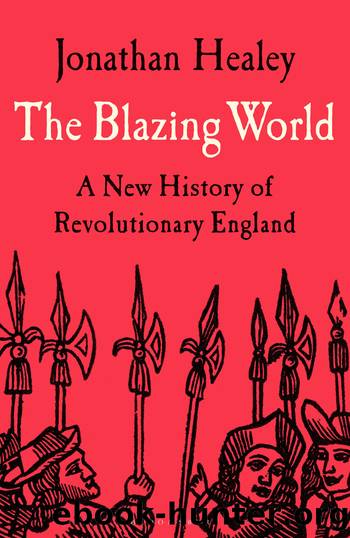The Blazing World by Jonathan Healey;

Author:Jonathan Healey;
Language: eng
Format: epub
Publisher: Bloomsbury UK (Trade)
Fairfax, furious at the unnecessary loss of life caused by the Royalist insurgency, sentenced four commanders to death by firing squad. One escaped, another was spared on discovery that he was a foreigner. Two, Sir George Lisle and Sir Charles Lucas, were shot. Pontefract was now the only major stronghold to remain.
Still, though, Parliament continued to offer negotiation to the stricken king. In fact, the popular violence of the year had only served to convince MPs that a settlement was all the more urgent. As the New Model Army fought the Royalist resurgence, Parliament â terrified by where this all might lead â had moved back towards a more moderate posture. The 11 members, including Denzil Holles, had been readmitted, and now Parliament had sent emissaries to the Isle of Wight to begin negotiations on what would hopefully develop into the Treaty of Newport. It looked like after everything â after all the blood spent â Parliament would betray the cause and come to a weak peace.
The torrential summer rains brought yet another terrible harvest, now the third in succession. In Cheshire, market officers wailed that âthe poor were very harsh with us and thought it to be our faultâ.10 The Levellers were resurgent and now had a regular newspaper, called The Moderate (the jokes were predictable). In the summer, the radical MP Henry Marten had ridden home to Berkshire and raised a regiment committed to fighting âall tyrants whatsoeverâ. He also â probably â penned an urgent pamphlet in the name of the âplain men of England against the rich and mightyâ. It promised a continued fight against the rich: âwe shall make bold with our servants and families to visit your rich houses, barns, butteries, cupboards and tablesâ, and to take what they wanted.11 A huge petition, claiming to represent thousands of âwell-affected personsâ, was presented on 11 September, calling for the abolition of tithes, monopolies and the excise, an end to enclosures, the relief of beggars and for justice against the âcapital authorsâ of the wars. Parliament ignored it, and two days later a crowd pressed against the Commons door with another. Demonstrators were heard saying that there was âno use of a King or Lords any longerâ.12
In was in the Army, though, that the real revolutionary spirit was stirring. The soldiers seethed with anger. How dare Charles go against Godâs providence that had brought victory to Parliament; how dare he force them to risk shedding their blood once more. Charles was âguilty of all the bloodshed in these intestine warsâ, said a petition from Iretonâs regiment.13 He had âpolluted the land with bloodâ, said another.14
Download
This site does not store any files on its server. We only index and link to content provided by other sites. Please contact the content providers to delete copyright contents if any and email us, we'll remove relevant links or contents immediately.
| General | Channel Islands |
| England | Northern Ireland |
| Scotland | Wales |
Room 212 by Kate Stewart(4739)
The Crown by Robert Lacey(4573)
Endurance: Shackleton's Incredible Voyage by Alfred Lansing(4507)
The Iron Duke by The Iron Duke(4122)
The Rape of Nanking by Iris Chang(4023)
Killing England by Bill O'Reilly(3898)
Joan of Arc by Mary Gordon(3784)
Say Nothing by Patrick Radden Keefe(3725)
I'll Give You the Sun by Jandy Nelson(3273)
Shadow of Night by Deborah Harkness(3176)
Hitler's Monsters by Eric Kurlander(3164)
Mary, Queen of Scots, and the Murder of Lord Darnley by Alison Weir(3066)
Blood and Sand by Alex Von Tunzelmann(3056)
Darkest Hour by Anthony McCarten(3018)
Margaret Thatcher: The Autobiography by Thatcher Margaret(2971)
Eleanor & Park by Rainbow Rowell(2943)
Red Famine: Stalin's War on Ukraine by Anne Applebaum(2816)
Book of Life by Deborah Harkness(2720)
The One Memory of Flora Banks by Emily Barr(2685)
